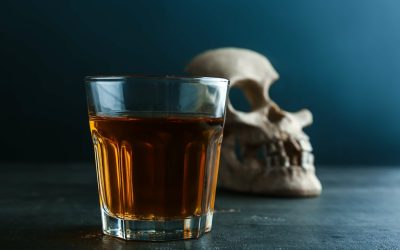Content
- Allergy, Cold, and Flu Medications
- Can I drink alcohol while on blood thinners?
- How can I make my blood thinner naturally?
- Can you drink coffee while on blood thinners?
- MEDICAL ENCYCLOPEDIA
- Comparing Vyvanse alternatives: which other ADHD medications can I take?
- Short-Term Effects of Alcohol on Blood
- Behavioral Treatment
You might not need to completely avoid alcohol if you are taking a blood thinner. The American Heart Association recommends limiting your intake to no more than one or two occasional drinks if you are on anticoagulant therapy. If you take a blood thinner, even an occasional drink can increase your risk of internal bleeding. You should avoid drinking alcohol if you are taking allergy medications or any multi-symptom cold and flu formulation. In addition to worsening the side effects of antidepressant medications, mixing these drugs with alcohol can also make symptoms of depression worse. In general, alcohol use has the potential to make symptoms of a mental health condition worse.
Winter Skincare Tips for Women Over 50 – Integris
Winter Skincare Tips for Women Over 50.
Posted: Tue, 07 Feb 2023 21:53:38 GMT [source]
This interference can lower platelet numbers and have serious consequences, likeincreasing the risk of bleeding and stroke. But in people who drink heavily, there can be a rebound effect in which the bleeding risk increases, even after they’ve stopped drinking. Exceeding the recommended guidelines above is considered heavy drinking. But having more than three alcoholic drinks daily could increase your risk for a type of stroke caused by bleeding in the brain . Chronic alcohol use can be even more dangerous when mixed with blood thinners.
Allergy, Cold, and Flu Medications
Calls to any general helpline (non-facility specific 1-8XX numbers) could be forwarded to SAMHSA or a verified treatment provider. Calls are routed based on availability and geographic location. Drinking a small amount can help people feel relaxed, but too much, too often, can be harmful for health.
- The relationship between alcohol and deep vein thrombosis may depend on what, and how much, you pour in your glass.
- We want to give recovering addicts the tools to return to the outside world completely substance-free and successful.
- If you or someone you love is struggling with alcohol addiction, professional treatment at a licensed rehab facility can help.
- This antioxidant may reduce harmful cholesterol levels and minimize the risk of blood clots.
- If your doctor does give you the okay to drink alcohol while taking blood thinners, do so in moderation.
- Yet because of this effect, drinking alcohol could potentially increase your risk for the bleeding type of strokes — especially when you drink it in large quantities.
Alcohol can reduce some of the “stickiness” of red blood cells, which can lower the odds of blood clotting. Blood clots in thickened arteries or veins are often what contributes to heart attacks and strokes. By reducing the likelihood that these blood cells will stick together and form a clot, alcohol may then “thin” the blood and help to prevent cardiac complications. Acting as a blood thinner, alcohol can then also lower the risk for a stroke, which is when there is a reduced flow of blood to the brain due to blocked or narrowed arteries.
Can I drink alcohol while on blood thinners?
Thin blood also makes it harder to heal from everyday injuries. We are dedicated to transforming the despair of addiction into a purposeful life of confidence, self-respect and happiness. We want to give recovering addicts the tools to return to the outside world completely substance-free and successful. Beyond your blood platelets,abusing alcohol can significantly harm your health, including liver damage, high blood pressure, nerve damage and depression. In astudy by The Recovery Village, heavy drinkers were also 73% more likely to experience a seizure and 48% more likely to have cancer than light or moderate drinkers. Some unhealthy habitslike smokingcan thicken the blood, while drinking can thin the bloodby interferingwith the production and function of blood platelets .
Why is my blood thin like water?
Thin blood occurs when a person has a low number of platelets. Doctors refer to the condition as thrombocytopenia. The normal level of platelets in the blood is between 150,000–450,000 per milliliter (mL) . If levels of platelets fall below 150,000/mL , it may indicate thin blood.
Antiplatelets are mainly taken by people who have had a heart attack or stroke. The newer oral anticoagulants do not have alcohol-drug interactions listed in their product labeling. However, if you consume large amounts of alcohol at one time or drink alcohol on a daily basis, be sure to discuss this with your doctor. Heavy alcohol use may increase the risk of a stomach ulcer or bleeding, and this can be worsened by an anticoagulant. However, it’s worth noting that thinning the blood may increase your risk of a different kind of stroke called a hemorrhagic stroke. Blood vessel blockages can also form because of high-cholesterol diets. Alcohol, in low to moderate amounts, thins the blood, reducing the risk of clots.
How can I make my blood thinner naturally?
Alcohol should be avoided when taking Coumadin, as it is one of the most serious risk factors for complications with this medication. Blood clotting and alcohol abuse are linked for several reasons. Drinking blood thinners and alcohol reduces platelets in the blood, mainly by inhibiting blood cell production in the bone marrow. Anticoagulants, also described as blood thinners, are a group of drugs that reduce the ability of blood to clot.




